This Australia-Based Pinay Scientist Proves That Hard Work Really Pays Off
More often than not, we always end up asking ourselves what we want to do with our lives, especially in terms of career. What job do I see myself doing in the longrun? What company do I want to work for? These are all questions we come across regularly.
For Pinay Emmylou Nicolas, pursuing further studies, or was one major decision she set for herself. In an exclusive email interview with Cosmopolitan Philippines, she talked about wanting to learn new skills and to experience living in another country. Below, she shared her *inspiring* career journey from being a high school science teacher in Camarines Sur, to applying for the Master of Biotechnology (Biomedical Science) program at the University of Adelaide in Australia, and eventually becoming a Research Assistant for the Neurogenetics Research Group. Keep reading to know more.
How did you start getting interested in science?
Emmylou: "When I was still in elementary, I had a Science teacher who would always ask us to bring different materials from home so we could conduct experiments in class. I came from a small public school, so we didn't have a high tech laboratory, but her resourcefulness in facilitating science activities greatly helped in sparking my curiosity about the natural world."
"After graduating from high school in 2012 at the age of 15, I got accepted into the BS Biology program of Bicol University. (Fun fact: When I was still applying, my mother was the one who suggested that I write BS Biology on the application form. It's the same course one of my cousins was studying at that time.) Honestly, I didn't really think much of it because I was just so excited that I'm going to be in a new university and I'm going to learn new things.
For the first few months of college, I was struggling because I didn't know much about Biology. In my second year, I even thought about whether or not I should shift to other courses like Architecture or Dentistry. Eventually, I stayed because one of my lecturers once said, 'Not all of the students are going to finish the degree. It will be a survival of the fittest.' As a very competitive person, I decided to take that as a challenge. I graduated in 2016 at the age of 19. Thanks to all the things I learned in undergrad, I was able to grab many opportunities."
"Looking back, I didn't expect that not taking the college application seriously had a butterfly effect on my life. That small impulsive decision of just writing a degree I wasn't even interested in would later on lead me here to Australia to do amazing things."
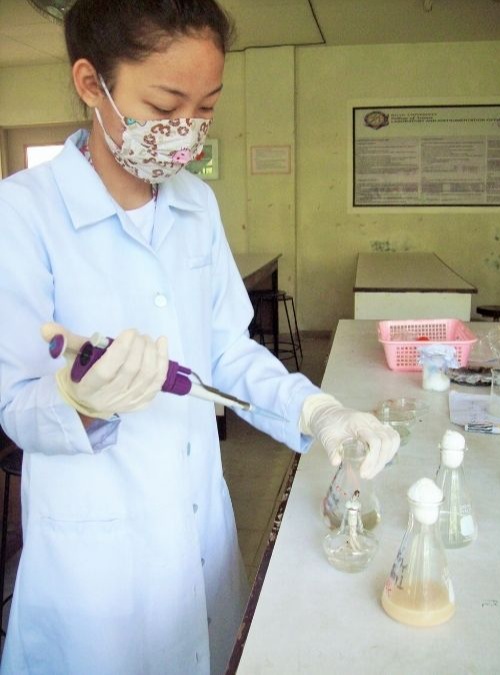
After grad, you became a teacher and handled General Science, Earth Science, and Physical Science, among other subjects. What was that like?
E: "During my undergrad, I was a recipient of the DOST-Junior Level Science Scholarship, which required me to serve the country as a Special Science Teacher in public Senior High Schools. In my three years working at my hometown's local high school, I noticed a sad reality. Due to the lack of public school teachers, most are left with no other option but to teach subjects outside their specialization. Similarly, I was given subjects that are not the field of my expertise. At first, I was very hesitant, but I accepted my fate and ended up enjoying because I was learning while teaching them."
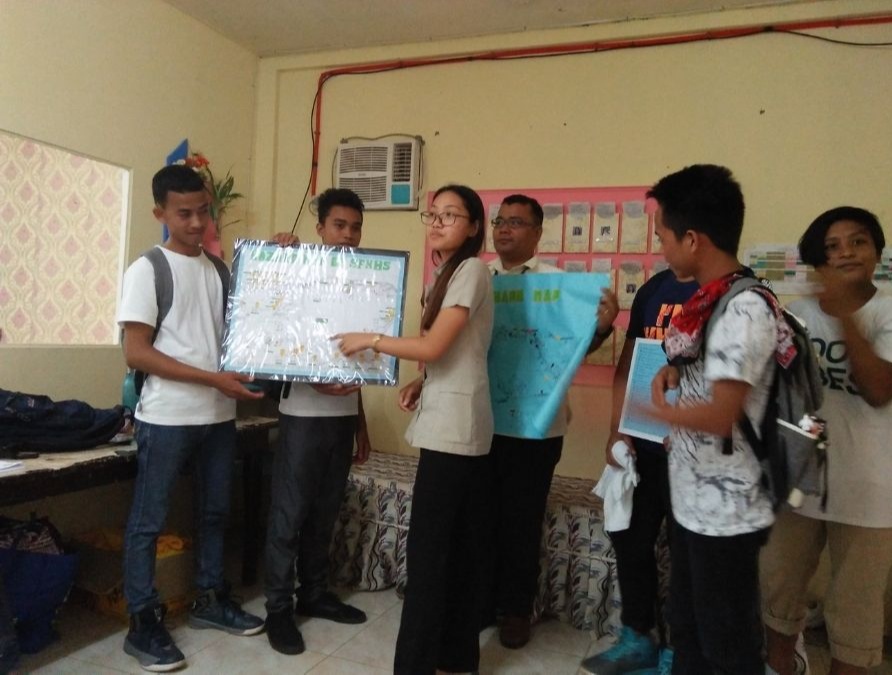
"Being a teacher is bittersweet. In my own ways, I served as an inspiration to students to pursue their dreams. Not only did I help steer them in the right direction, but I also learned about their personal stories. My teaching years definitely had a great impact on how I look at life now."
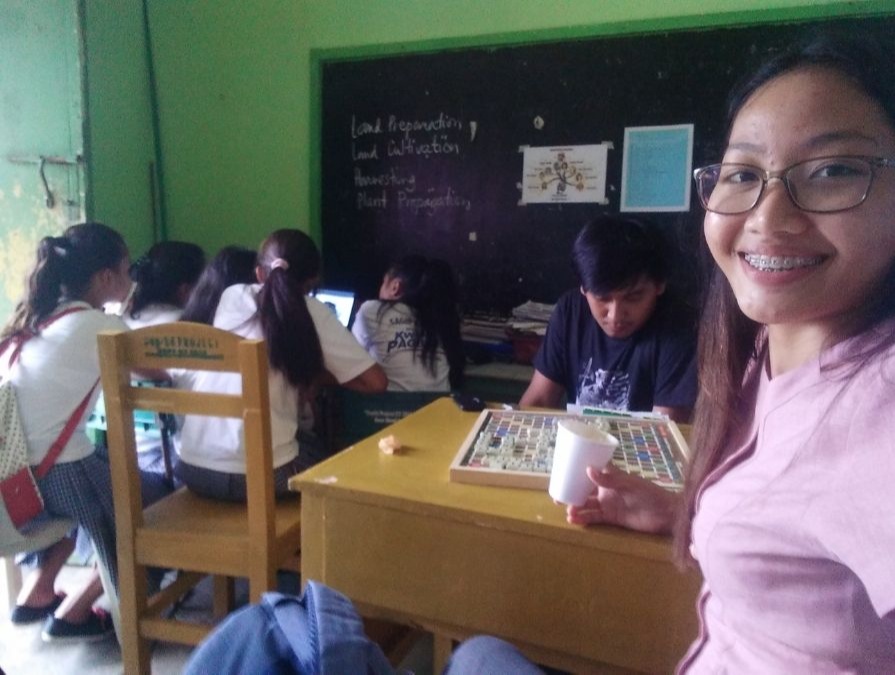
Tell us more about your career journey in Australia.
E: "When I was about to finish my service as a teacher, I was contemplating on what I wanted to do next with my life. I didn't feel like an expert yet who could teach science, so I knew I had to pursue further studies."
"I was looking for possible programs I could apply to. After much research, I decided to apply for the Master of Biotechnology (Biomedical Science) program being offered at the University of Adelaide. An agency helped me process the application which cost 500 AUD (approximately P19,000). I submitted my Diploma and Official Transcript from my undergrad, applied for a passport, and also took the International English Language Testing System (IELTS) which costs roughly P11,000.
After weeks of waiting, I was given an offer letter. At the time, since I didn't have the money yet to accept and deposit half of the tuition fee for the first semester, I had to defer my university offer by one semester. To give you an idea, one semester for my degree cost 20,000 AUD (approximately P746,000).
When I finally deposited half of my fees to the university, I then took health examinations that cost around P7,000. After accomplishing all the requirements, I then filled out my Australian Student Visa (Subclass 500) application. Thankfully, I was granted my visa on the same day it was submitted."
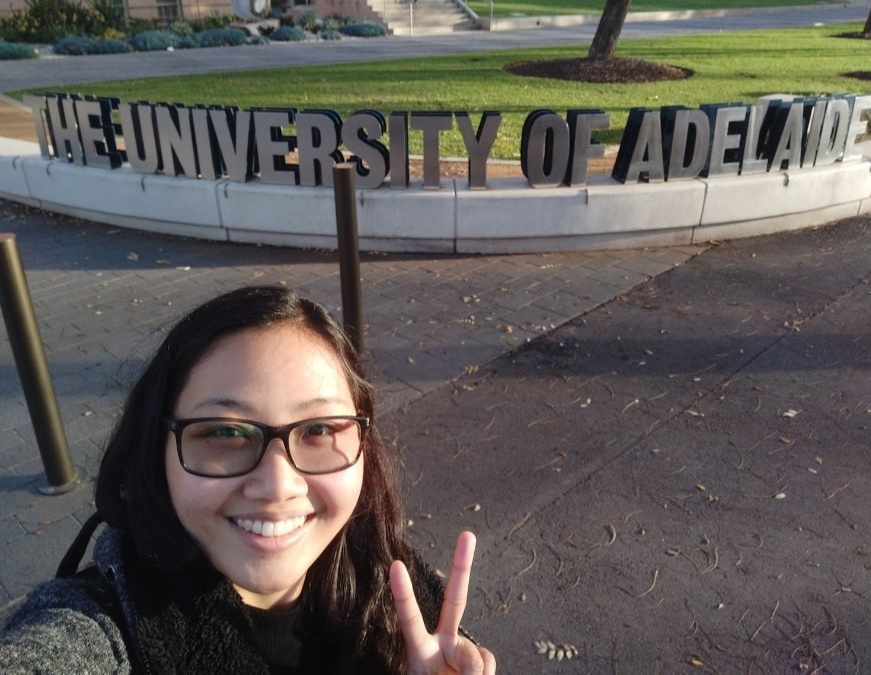
"On May 23, 2019, I flew to Australia alone. It was the first-ever flight of my life. Luckily, the transition in lifestyle wasn't hard for me and my university studies started two months after. By the end of my first year, we had to find a lab to do our research project. Fortunately, I got an opportunity to set up a Zoom interview with Research Fellow Dr. Lachlan Jolly, Molecular Biologist and Bioinformatician Dr. Mark Corbett, and the head of the Neurogenetics lab, Professor Jozef Gecz. Eventually, they decided to take me in as a research student."
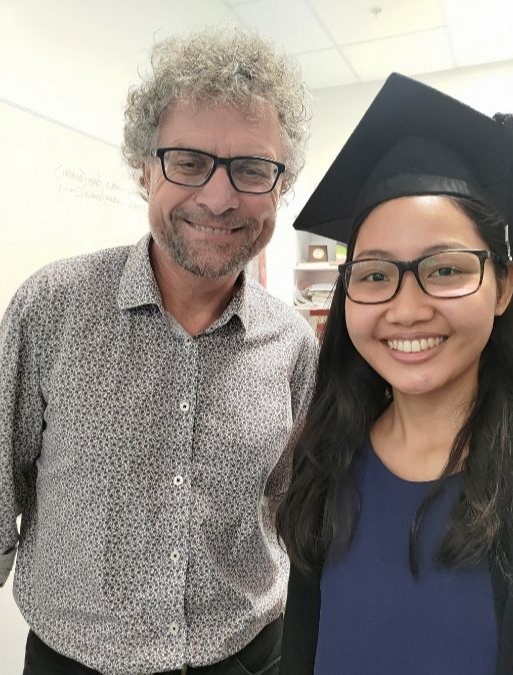
"In a span of one year with them, I learned so many skills—molecular cloning, flow cytometry, cell and tissue culture, real-time PCR, and many more. I enjoyed learning new techniques in the lab. Plus, I had a great supervisor. He let me direct my project and gave me the chance to present my work in conferences including the Australian Society for Medical Research (ASMR) South Australian (SA) Meeting 2021, Adelaide Protein Group (APG) AwardsFest 2021, and the Australia and New Zealand Society for Cell and Developmental Biology (ANZSCDB) SA Meeting. He's supports me in all my talks, and is very generous with positive feedback—which helps a lot in boosting my morale. Having a good relationship with my supervisor was also a major factor as to why I did well with my research."
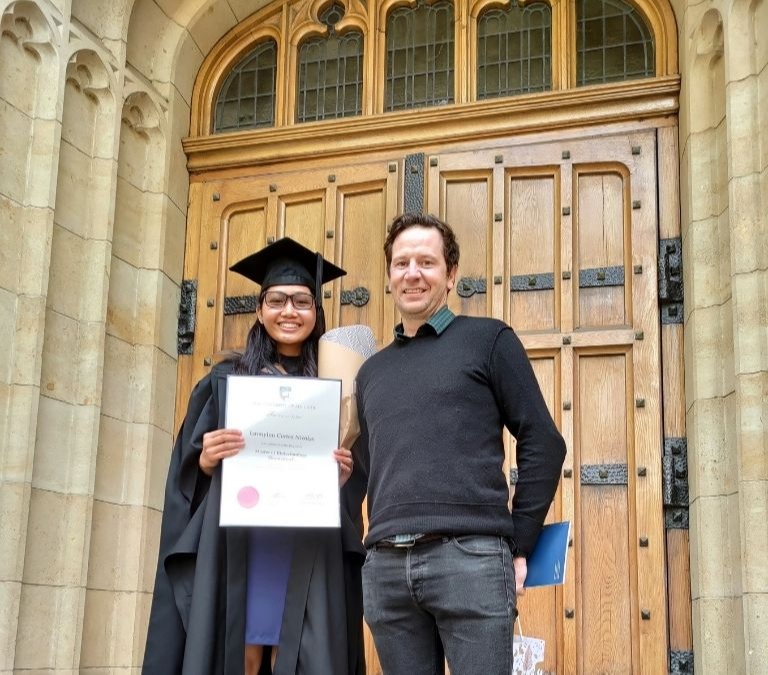
In a span of one year with them, I learned so many skills—molecular cloning, flow cytometry, cell and tissue culture, real-time PCR, and many more.
"After finishing my studies, I stayed in the group to work as a Research Assistant for Lachlan. I am mainly involved in conducting experiments for three different research projects now. Overall, my work mainly involves genetically engineering different cell types like human embryonic kidney cells (HEK cells), fibroblast, and blood cells derived from patients, and soon, human embryonic stem cells and neuronal cells, to better understand the mechanisms of neurodevelopmental disorders."
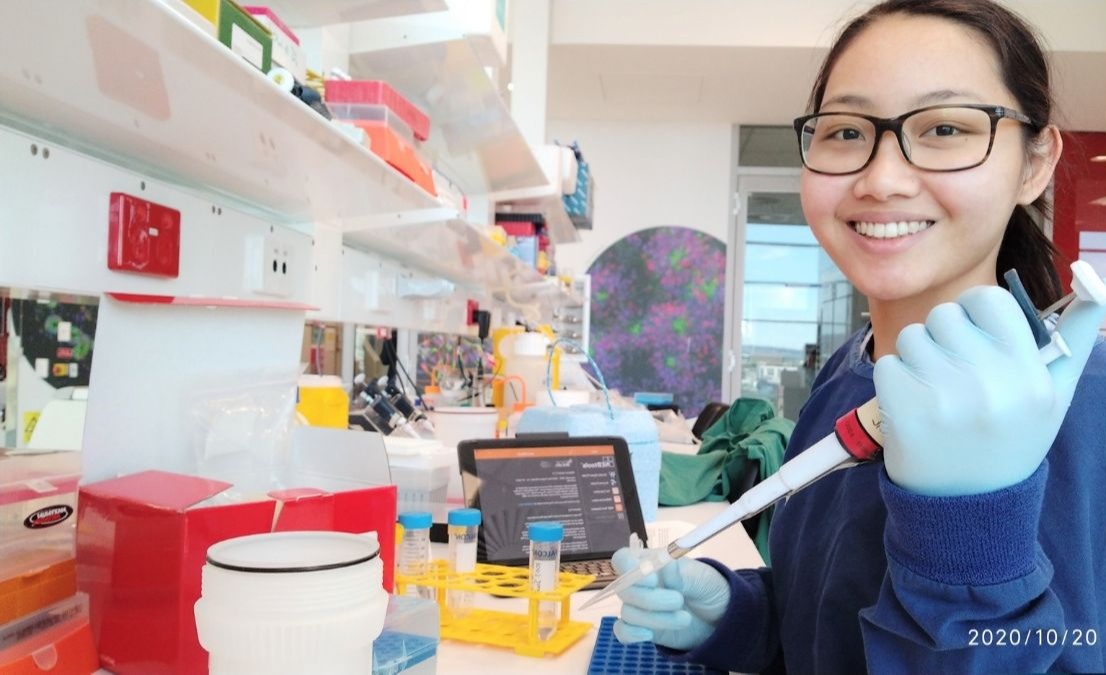
What are some of the challenges and best moments you've experienced in your career so far?
E: "When I got accepted to the University of Adelaide, I only got a 15 percent scholarship. I had to work on weekends while studying full-time on weekdays. When the pandemic hit, I lost my part-time job as a store cashier, which was my biggest source of income. I had to rely on my other odd part-time jobs to support my weekly expenses. I was delivering food for Uber Eats, babysitting, and taking care of dogs, too. I also worked as a cleaner or gardener. Basically, for the last year of my studies, I was surviving due to donations from the churches and the Filipino community here in Australia. Despite the hardships, I didn't let it ruin my plan which is to do well with my studies. My mindset was that my lab and academic performance would help give me an edge in the future. Now, I am working as a research assistant, slowly paying back the people I borrowed money from to pay my university fees. Looking back, I realised how much resilience I've got."
For the last year of my studies, I was surviving due to donations from the churches and the Filipino community here in Australia.
"As for the best moments in my career, it would probably be that one time I was activating the genes in the patient cells. We weren’t even sure that it was going to work since it was all theory, but it did! I was able to achieve the main goal of my study which is to activate the expression of the silent gene in the cells of the patients and saw how the genetic mutations are affecting the function of the gene.
It was even more exciting when we got the chance to tell the scientific community about our findings at different scientific conferences. People get so excited about our work as well. We are now collaborating with other scientists, and new families of patients to produce publishable results. It motivates us even more to continue this project."
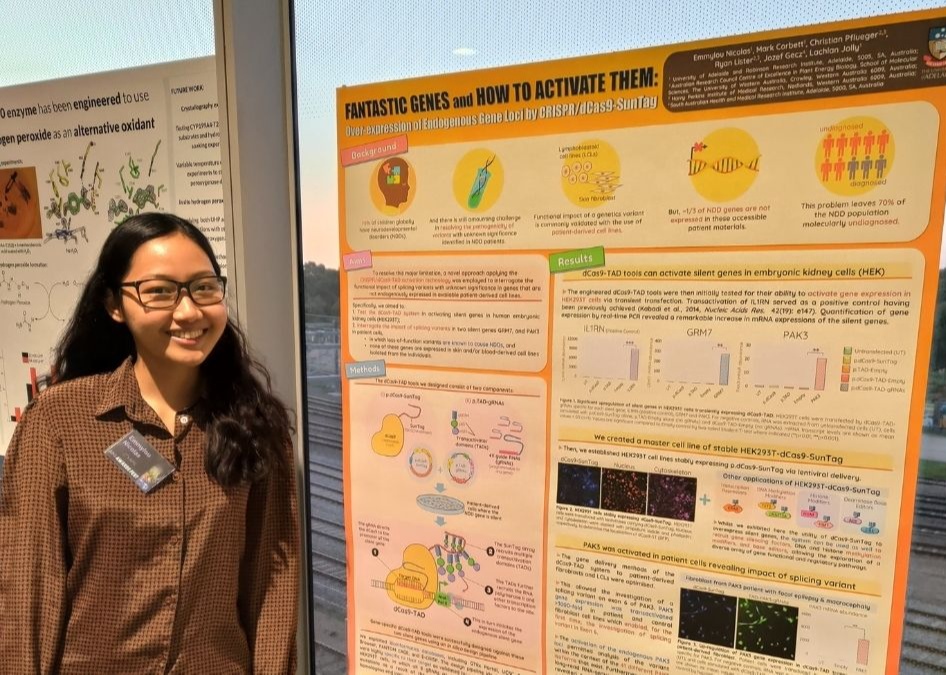
"Another best moment in my career was when I gave my final defense for my Masters. I was judged by Dr. Fatwa Adikusuma, a CRISPR expert, and Professor Robert Richards, a geneticist. When I gave my talk, the first thing my thesis examiners told me was that they enjoyed reading my work, but they liked listening to me speak even more. I thought the defense was going to be so intimidating, but to my surprise, it felt like we were just talking about my thesis. They were excited to ask their questions and to know my opinion about it. I found out that Dr. Fatwa gave me a perfect score for my talk. I was so happy. Speaking in straight English had been one of my weaknesses for a long time, but on that day, I defeated my fear."
Maybe a career in science was the best-suited career for me. I am good at it, I love what I'm doing, I am greatly appreciated by the people around me, and most especially, I am contributing new knowledge that would greatly benefit humankind.
"According to Dave Isay of TEDTalk, our calling is at the intersection of a venn diagram of three things: doing something you're good at, feeling appreciated, and believing your work is making people's lives better."
"That was the time I thought that maybe a career in science was the best-suited career for me. I am good at it, I love what I'm doing, I am greatly appreciated by the people around me, and most especially, I am contributing new knowledge that would greatly benefit humankind."
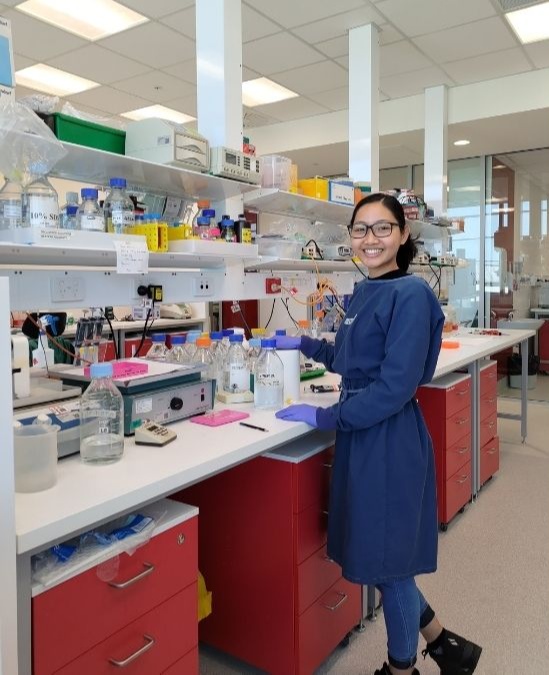
What's something you wish more people knew about your job?
E: "You need a lot of patience and resilience. You will be handling a massive amount of samples to process, or cells to take care of. And most of the time, you will be repeating experiments. It won't always work the first time.
All skills or knowledge you're learning at school or university now will be helpful to you when you start doing research, so don't just memorize for the sake of exams. Science does not mean you do not need mathematics. You still need to be good at Math. You will be doing lots of presentations in science. For people to know what you're working on, you will need to talk about it in conferences and laboratory meetings."
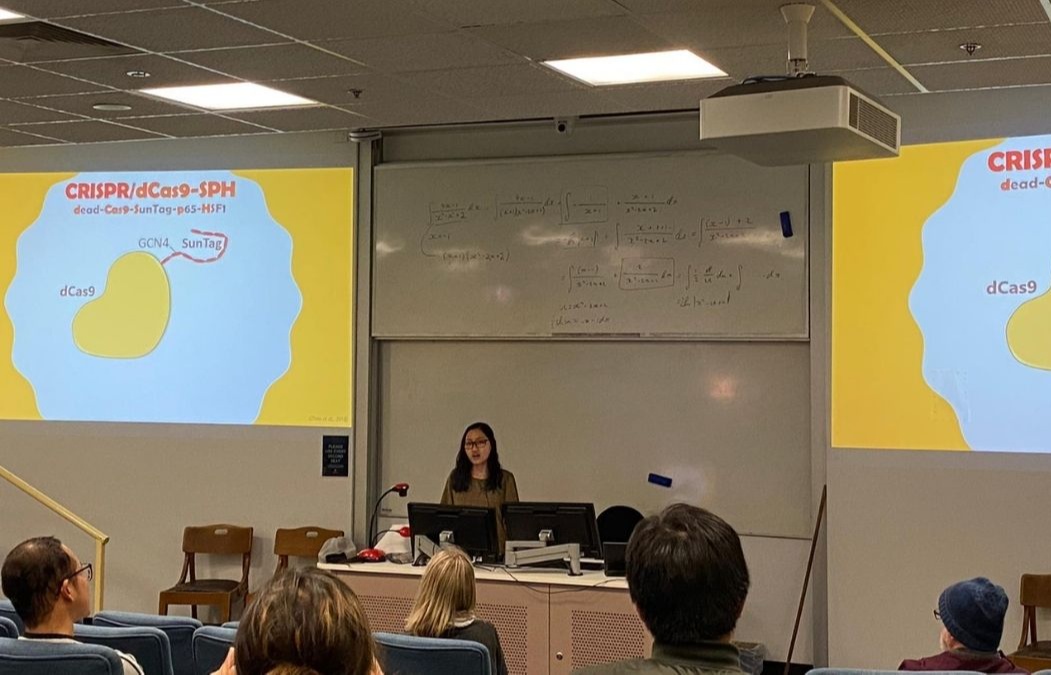
"Science can be an unstable career. Your capability to conduct research solely depends on research grants coming from the government and other private funding bodies. Every year, post-doctoral scientists need to write research proposals to be granted money to carry out the experiments. That also means you would have to compete with other fields for the grant money, like cancer research and today, COVID-19 vaccine research.
Having a career in science also means most of your day is spent doing lab experiments and writing. But I think the coolest thing about it is that if you are interested in something and have a crazy idea in mind, you can design and conduct an experiment to test if it's true. That means you are your own boss. You get to decide what experiments you want to do. It never gets boring because you'll always be doing a different thing everyday, (unless you are repeating a failed experiment, of course)."
What can people expect to earn in your line of work?
E: "For research assistants, you can earn 50,000 to 90,000 AUD annually (roughly P1,863,000 to P3,353,000). If you are heading to PhD, the stipend would be 30,000 AUD a year (approximately P1,118,000). After you finish your PhD and you become a Post-Doctoral Researcher or Scientist, you can earn from 90,000 to 150,000 AUD yearly (about P3,353,000 to P5,591,000). The highest title you can achieve here at the University is a Professor which can earn you up to more than 180,000 AUD annually (approximately P6,709,000)."
Any advice for people who want to pursue a career in science?
E: "It is totally okay if you are still not sure of where you are headed. Sometimes, it even makes life more exciting! From experience, I just grabbed every opportunity that was in front of me. Now, I'm in Australia doing science because of it."
"Just enjoy the process of learning new things and as you go along your journey, you'll learn more about yourself and what you want to do. Most of the skills you'll learn in the lab are transferable to different fields, so don't put too much pressure on yourself thinking that what you're doing now is what you'll be doing forever. After all, you become a more well-rounded person if you get to experience different things. I don't regret becoming a teacher. It's one of the biggest reasons I am excelling in my field now."
Be curious. Learn to ask questions. Don't be lazy.
"When applying for research groups, be enthusiastic and learn what the labs are all about. Read their papers. Don't just reach out to them without knowing who they are. Be curious. Learn to ask questions! And this is the advice I tell myself as well: Don't be lazy. Give your best now and study hard. Be ready to make some sacrifices and spend most of your time alone doing experiments, writing papers, or reading journals."
"During my stay here in Australia, I learned to ask for help. Are you having a hard time with an experiment? Ask someone who's always in the lab. Do you need a part-time job while studying? Talk to the people around you. Maybe they know someone who is looking for someone to hire. I survived my studies by asking for help. If I hadn't done it, I might not be graduating this year. You'll be amazed at the love and support you'll receive when you do.
Also, it's okay to make mistakes. Don't be discouraged by failures. In science, you'll have multiple failed experiments, and giving up won’t really help at all. It's actually due to failures that you start learning things because you start to question why it's not working. Oftentimes, I'd find myself making mistakes in the lab, or asking really dumb questions. But I don't dwell too much on it. I just always tell myself I'll do better next time. Celebrate small and big wins. Be kind to yourself."
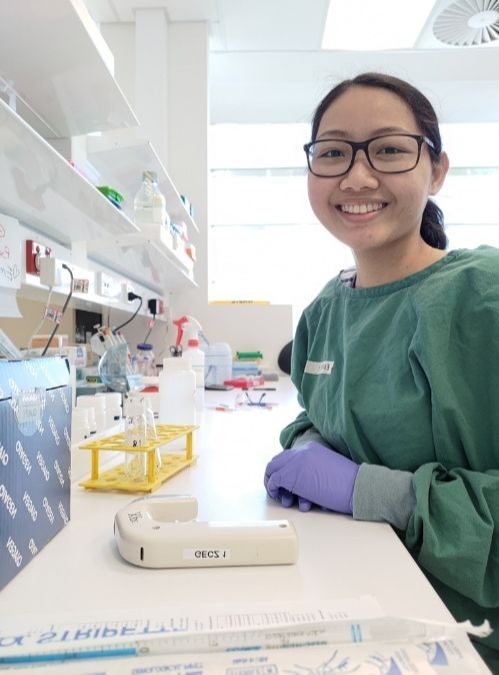
*Answers have been edited for clarity.
***
Cosmopolitan Philippines is now on Quento! Click here to download the app and enjoy more articles and videos from Cosmo and your favorite websites!
Follow Lou on Instagram.
MORE INSPIRING WOMEN:
How This Pinay Chemical Engineering Grad Shifted Careers And Became A Tattoo Artist
How This Pinay Ballerina Started A Career In Esports
This Pinay Speech Pathologist Shares What It's Like To Help Kids With Communication Disorders
[ArticleReco:{"articles":["77902","78774","78338","70293"], "widget":"More from cosmo"}]
Source: Cosmo PH

Post a Comment
0 Comments